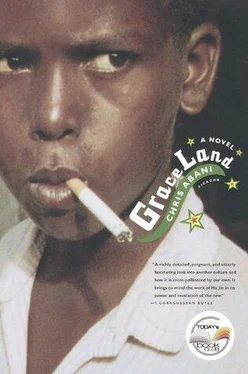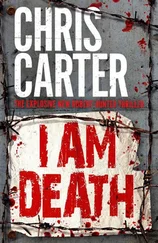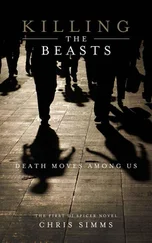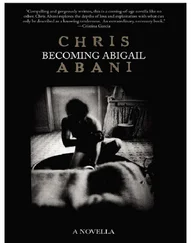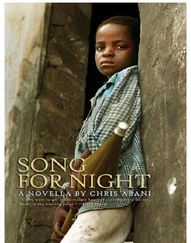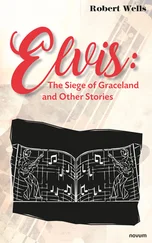The play itself consisted of an opening and then a scene or play proper. The opening varied between twenty minutes and an hour and consisted of a chorus, an in and a duet. The opening chorus was usually a fox-trot or a quickstep sung and danced by the main characters. Esau excelled at this. The in and the duet were both comedy sketches. The in was performed by a solo stand-up comedian, while the duet was played by two actors. It was within the opening that all of the vaudeville influences were kept. As with all traditional performances, audience participation was encouraged. This varied from applause, weeping and jeering to throwing food and money onstage. A few members of the audience usually joined the actors onstage, improvising with them.
The evening passed uneventfully, and they got away with a fivehour performance, including the dances. Tired but richer, the musicians headed for the van and the local police station. Where they could, they tried to sleep in or near one; it was the safest place for them. While the musicians bedded down on raffia mats in the station’s courtyard, the King counted up the evening’s takings, which he locked in a small metal safe.
A few of the other musicians, George included, were huddled under a neem tree, smoking beside a fire. The neem wood burned lazily, releasing a cooling eucalyptus scent. Elvis, unable to sleep, joined them. They made room for him. Langalanga, the bass player, sat with a metal saw trapped between his knees. With one hand he bent and massaged the blade. With the other he drew his bass bow across the blunt edge, causing the saw to sing: a deep belly growling hunger that rose to the shrill call of morning angels.
George passed him a cigarette and Elvis dragged deeply, blowing smoke rings before passing it back. Thinking about Redemption, the Colonel, his father and the effort to protect Maroko from destruction, he felt a sudden pang of sadness.
George noticed the expression on Elvis’s face and asked, “What is it?”
“I just realized something,” Elvis replied.
“What? Are you in love?”
“No. I just realized that it is only a small group of people who are spoiling our country. Most people just want to work hard, earn a living and find some entertainment. Yet it seems that no matter how they try, they remain poor.”
“What are you talking about?” George asked, confused. “Where did dat come from?”
“Leave him, he is making sense,” the King said, coming over to join them. He laughed deeply and slapped Elvis on the back. “De boy is becoming a man,” he said.
Elvis swallowed.
“Dat is exactly what I have been trying to tell you since I met you. De majority of our people are honest, hardworking people. But dey are at de mercy of dese army bastards and dose tiefs in the IMF, de World Bank and de U.S.,” the King said.
“But how is the World Bank responsible if we mismanage the funds they give us?”
“Funds? What funds? Let me tell you, dere are no bigger tiefs dan dose World Bank people. Let me tell you how de World Bank helps us. Say dey offer us a ten-million-dollar loan for creating potable and clean water supply to rural areas. If we accept, dis is how dey do us. First dey tell us dat we have to use de expertise of their consultants, so dey remove two million for salaries and expenses. Den dey tell us dat de consultants need equipment to work, like computer, jeeps or bulldozers, and for hotel and so on, so dey take another two million. Den dey say we cannot build new boreholes but must service existing one, so dey take another two million to buy parts. All dis money, six million of it, never leave de U.S. Den dey use two million for de project, but is not enough, so dey abandon it, and den army bosses take de remaining two million. Now we, you and I and all dese poor people, owe de World Bank ten million dollars for nothing. Dey are all tiefs and I despise dem — our people and de World Bank people!” the King ranted.
Elvis didn’t know what to say. He looked up at the sky. It was beautiful. Stars. Like so much sand.
“But why don’t we revolt and overthrow this government?” he asked finally, unable to keep the exasperation out of his voice.
“Who want to die?” George said.
“We should retire for de night,” the King said, squinting at his pocket watch in the half-light. “We leave early for Lagos. We go perform for Freedom Square tomorrow. I hear say de Colonel’s boys go dey dere. Time to send a powerful message, eh?”
Nearly everyone laughed heartily. But the King noticed Elvis’s terrified look and took him aside.
“Don’t worry, Elvis. Your matter go done clear by now.”
“How do you know?”
“I don’t, but I just feel it.”
“I’m afraid. The Colonel is trying to kill me.”
“Yes, but by now him go done tire for dat.”
“You don’t know. I’m not convinced.”
“I am sorry, but we must return tomorrow. You can stay.”
“Where? Here? I don’t know anybody here. I don’t even know the language. How can I stay here?”
“Den you must return with us. No worry, I go protect you.”
Elvis spent a restless night, dreaming that the Colonel was chasing him with a large machete, slashing at him madly and only just missing.
Dawn left streaky marks across night’s face, and the men stood by the idling van, sipping gingerly on hot tea flavored with eucalyptus leaves and munching on hard cassava bread. Farmers on their way to the fields called out greetings to the men. Some congratulated them on a good performance the night before. Elvis, mind numbed from too little sleep, yawned back at them.
George stood beside him. “Tired?” he asked.
“Very.”
“Ah,” George said. “It is so, coming and going. Never staying. You realize dis is de way your life will be from now on if you continue with us.”
“Yes, very exciting.”
“Wait a few years. Den tell me if it is still exciting.”
“Why are you so pessimistic?”
“Dis life is like an itch. You scratch and scratch, until you chaff your skin to de bone. But still you itch. I’m not pessimistic, Elvis. Just tired,” George said, walking off.
MOI-MOI
INGREDIENTS
Black-eyed beans
Onions
Palm oil
Fresh chilies
Salt
Crayfish
Maggi cube
Shredded beef
Dried fish
PREPARATION
Soak the beans overnight, then wash thoroughly to remove outer skins. Put beans in a blender with the onions, palm oil, fresh chilies, salt, crayfish and Maggi cube. Add the shredded beef and bits of dried fish. Pour the contents into envelopes of tinfoil or plastic containers. Next, put four sticks at the bottom of a large, deep pot in a cross pattern and cover with water. Put the wraps or containers in the pot on top of the crossed sticks. Steam over a low fire, topping up with water from time to time, until the moi-moi has the consistency of tofu. Serve with gari soaked in milk, water and sugar.
This is a journey to manhood, to life; it cannot be easy.
The old Igbo adage is: Manhood is not achieved in a day.
Lagos, 1983
Sunday stumbled bleary-eyed out of the house, straight into a rush of people, screaming and shouting. He stood on his veranda lost in an alcoholic mist.
“Sunday! Sunday! Dey have come!” Comfort screamed, running past him and dumping a hastily packed bag in the street before dashing back inside.
It was light everywhere, but it wasn’t sunlight. The earth rumbled as though thunder shook it. Sunday glanced at his watch; it was four a.m., too early to be dawn. He opened his fly and urinated into the street, narrowly missing the bag and a small group running past with an open coffin packed tight with their belongings. He raked up some phlegm and spat with a plop into the nearby swamp.
Читать дальше
